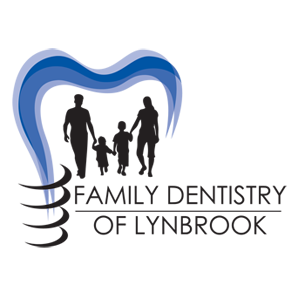An impacted tooth is one that fails to properly emerge through the gums. Dr. Patel will recommend extraction of impacted wisdom teeth if they pose a problem for your mouth and other teeth.
What are wisdom teeth?
Wisdom teeth are actually your third set of molars, the chewing teeth towards the back of your mouth. They typically emerge, or erupt, in one’s late teen or early twenties. If there is room in the jaw to accommodate them, and they emerge fully and straight, without crowding other teeth, then there is no need to remove them.
Why would wisdom teeth need to be removed?
Though there is nothing inherently wrong with wisdom teeth, they are often removed so that they don’t cause problems for your other teeth and the rest of your mouth.
Wisdom teeth often get impacted, which means they did not fully or properly emerge through the gums. Partially emerged teeth can be difficult to clean, which leads to plaque accumulation and tooth decay. Teeth that are not positioned straight can cause comfort issue and crowd existing teeth. Ask Dr. Patel to show you your wisdom teeth on the x-ray and explain how their positioning affects your mouth.
What does impacted mean?
An impacted tooth is one that did not fully or properly emerge through the gums. It could be that there is not enough room in the gums for more teeth, or that the teeth are coming in at the wrong angle. Sometimes a tooth is partially erupted, which means that only part of the tooth came through the gums. Partially emerged teeth can be difficult to clean, which leads to plaque accumulation and tooth decay. Teeth that are not positioned straight can cause comfort issue and crowd existing teeth. Ask Dr. Patel to show you the position of your teeth on the x-ray, and explain the significance of their position.
What can I expect from a wisdom tooth extraction?
This is a very common and typically a very simple procedure. Dr. Patel may perform the procedure, or may refer you to a specialist, but it is extremely safe and can be performed with little discomfort. The patient will be given a local anesthetic to numb the area, and it is very common for the patient to be sedated as well. This sedation is designed to keep the patient relaxed and comfortable throughout the appointment. Dr. Patel will sedate you just enough to make you comfortable, with techniques that range from the simple use of nitrous oxide (laughing gas), to oral medications which lightly sedate, to deeper sedation with intravenous medications. Ask Dr. Patel to explain which options are available and what would be best for your circumstances.
Why can’t I just keep my wisdom teeth?
Many people can keep their wisdom teeth. But dentists recommend extraction when the jaw has no room for more teeth or when wisdom teeth are not emerging properly. Though there is nothing inherently wrong with wisdom teeth, they are often removed so that they don’t cause problems for your other teeth and the rest of your mouth.

